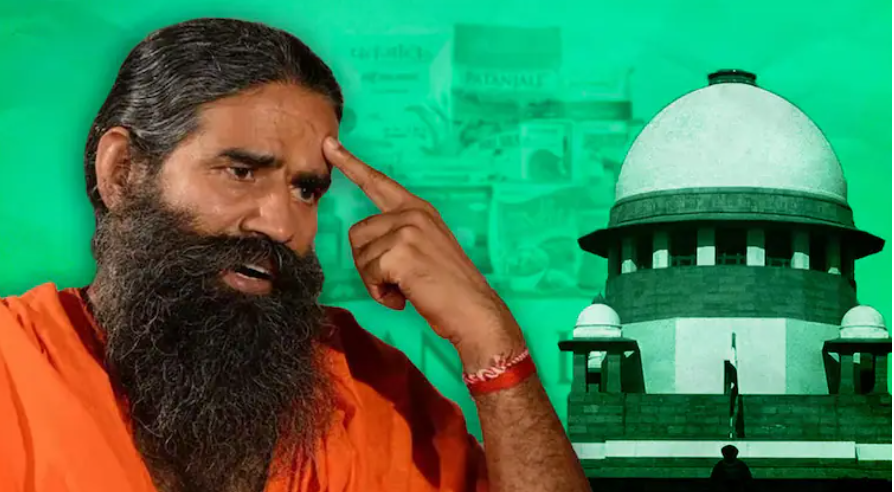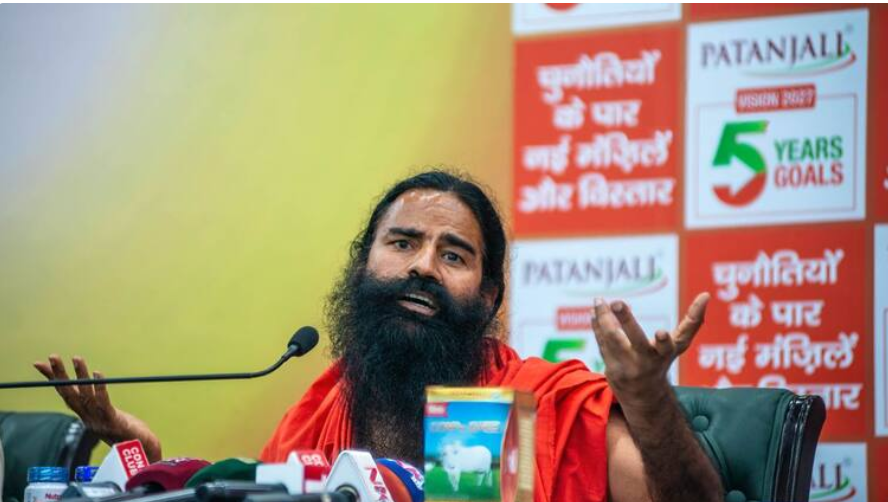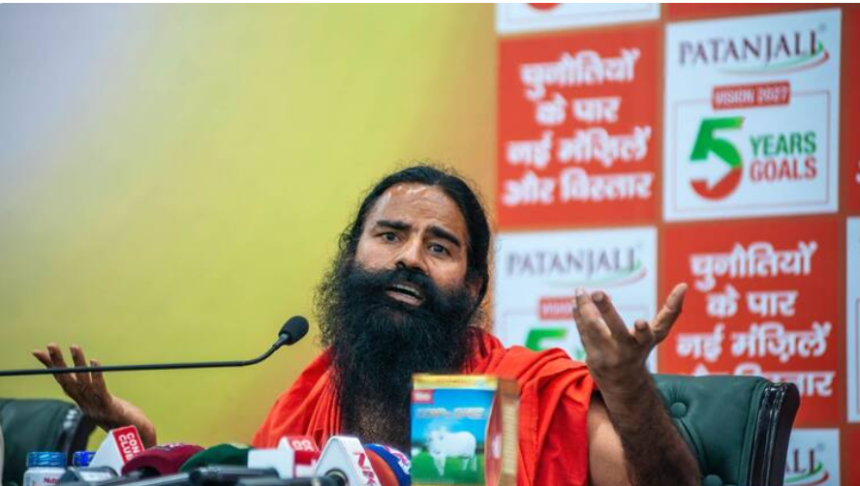Patanjali Misleading Advertisements:-
Patanjali Misleading Advertisements in a recent legal development that has garnered significant attention, the Supreme Court of India closed contempt proceedings against yoga guru Ramdev and his company, Patanjali Ayurved Ltd. The case, which has been in the public eye for several years, was finally resolved after the submission of an unconditional apology by the contemnors. This apology was not only submitted to the court but also published in various national dailies, signaling a resolution to a contentious issue corporate accountability in India.
Background of the Case
The origins of this case trace back to a series 0f Patanjali Misleading Advertisements Ltd. that were alleged to be misleading. These advertisements claimed that certain Patanjali products could cure serious ailments, including COVID-19, without providing scientific evidence to back these claims. The advertisements quickly drew the ire of regulatory bodies, consumer rights organizations, and the general public, leading to legal action.
The Ministry of AYUSH (Ayurveda, Yoga & Naturopathy, Unani, Siddha, and Homoeopathy) and other government agencies issued notices to Patanjali, questioning the veracity of their claims and the lack of scientific backing. Despite these notices, the company continued to promote its products aggressively, leading to widespread concern about the potential impact on public health.  for more information click on this link
for more information click on this link
Legal Proceedings and Charges
The case escalated when several consumer rights groups filed petitions in the Supreme Court, accusing o f and Ramdev of contempt of court for violating previous orders related to false advertising. The Supreme Court had earlier issued guidelines and orders intended to curb Patanjali Misleading Advertisements particularly those related to health and wellness products. The petitioners argued that Patanjali’s actions were in direct violation of these orders and posed a serious threat to public health.
The legal proceedings brought to light several instances where Patanjali Misleading Advertisements made unsubstantiated claims. For example, during the peak of the COVID-19 pandemic, Patanjali launched a product called “Coronil,” claiming it could cure COVID-19. This claim was made despite the lack of approval from relevant health authorities, leading to a nationwide debate on the ethics and legality of such advertising.
The Role of Ramdev and Patanjali Ayurved Ltd.
Ramdev, a well-known figure in India, has been the face of Patanjali Misleading Advertisements, a company that has grown rapidly over the years. His influence and popularity have been instrumental in building Patanjali’s brand, which is known for promoting traditional Indian medicine and wellness products. However, this case highlighted the darker side of the company’s marketing strategies, where the line between traditional knowledge and scientific validation was blurred.
Ramdev’s involvement in promoting products with unverified claims brought him under scrutiny. As a public figure with millions of followers, his endorsement of these products was seen as particularly problematic. Critics argued that Ramdev was leveraging his influence to push products that lacked proper scientific validation, thereby misleading the public.
The Unconditional Apology
In a surprising turn of events, Ramdev and Patanjali Ayurved Ltd. submitted an unconditional apology to the Supreme Court. This apology was not just a formality; it was a significant step towards resolving the legal battle. The contemnors acknowledged that their advertisements were misleading and that they had violated the court’s previous orders.
The apology was published in various national dailies, ensuring that it reached a wide audience. This public acknowledgment of wrongdoing was seen as a victory for consumer rights and a reminder to corporations about the importance of ethical advertising practices.  for more information click on this link
for more information click on this link
Supreme Court’s Decision to Close Contempt Proceedings
The Supreme Court’s decision to close the contempt proceedings was based on the acceptance of the unconditional apology. The court recognized that the contemnors had taken responsibility for their actions and had made amends by publicly apologizing. This decision marked the end of a legal battle that had significant implications for the advertising industry in India.
The closure of the case also set a precedent for how similar cases might be handled in the future. It underscored the importance of compliance with legal and ethical standards in advertising and reinforced the role of the judiciary in upholding these standards.
Impact on Patanjali Ayurved Ltd.
For Patanjali Misleading Advertisements Ayurved Ltd., this case was a wake-up call. The company, which had built its brand on the principles of Ayurveda and natural wellness, found itself in a difficult position. The legal proceedings and the subsequent apology damaged the company’s reputation, raising questions about its commitment to ethical practices.
However, the closure of the case also provided Patanjali Misleading Advertisements with an opportunity to rebuild its image. The company could use this experience to strengthen its advertising practices, ensuring that all claims are backed by scientific evidence and approved by relevant authorities.
Broader Implications for the Industry
This case has broader implications for the advertising industry in India, particularly in the health and wellness sector. It highlights the need for stricter regulations and oversight to prevent the spread of misleading information. Companies are now more aware of the legal risks associated with false advertising and are likely to adopt more cautious approaches in their marketing strategies.
The role of public figures like Ramdev in promoting products also came under scrutiny. The case emphasized the responsibility that comes with influence, particularly when it comes to health-related products. Public figures are now likely to be more careful in endorsing products, understanding that their words and actions carry significant weight.
Conclusion
The closure of contempt proceedings against Ramdev and o f Ayurved Ltd. marks the end of a significant legal battle, but it also serves as a reminder of the importance of ethical advertising practices. The Supreme Court’s decision, coupled with the unconditional apology from the contemnors, reinforces the need for companies to adhere to legal and ethical standards in their marketing strategies. For Patanjali, this case was a lesson in accountability, one that will likely shape its future operations and its approach to advertising. For the industry as a whole, it was a clear message that misleading advertisements will not be tolerated, and that consumer protection remains a top priority. ALSO READ:- Trump Campaign Hit by Hackers, Blames ‘Foreign Sources’: A Detailed Analysis of the Incident and Its Implications 2024





